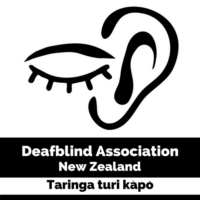We recently sent these five priorities to the Blind Foundation. We stand behind them in respect of the Foundation and our collaborative work:
- Volunteer driver support for deafblind members. Rationale: This isolated group seldom has the chance to come together for peer-to-peer support, and to meet, share, and resolve issues on their own terms.
- Quality sound systems in Blind Foundation venues where members meet, and staff trained to say their name and speak clearly and directly into the microphone every time for effective communication. Rationale: Many senior members as well as deafblind members need boosted and assistive hearing to participate, and one chance at identifying a person by voice is seldom enough to establish a connection with the speaker. Blind Foundation staff should be especially aware of the complexity for the deafblind members we all work for.
- Regular meetings between Deafblind Association NZ and Blind Foundation Deafblind Services for sharing information and coordinating initiatives, including regular face-to-face meetings of Deafblind EO and Blind Foundation National Manager responsible for Deafblind Services.
- Closer collaboration with organisations and agencies that “share the care” in respect of complex deafblind needs; e.g., those providing services for deaf and hearing impaired, and intellectually disabled – collaboration pan disability.
- A formal plan to develop intervenor communication guide service for members with severe to profound deafblindness. Rationale: The communication technologies and socialisation skills required by deafblind people, including hand-to-hand communication, are specialised and not easily acquired.
